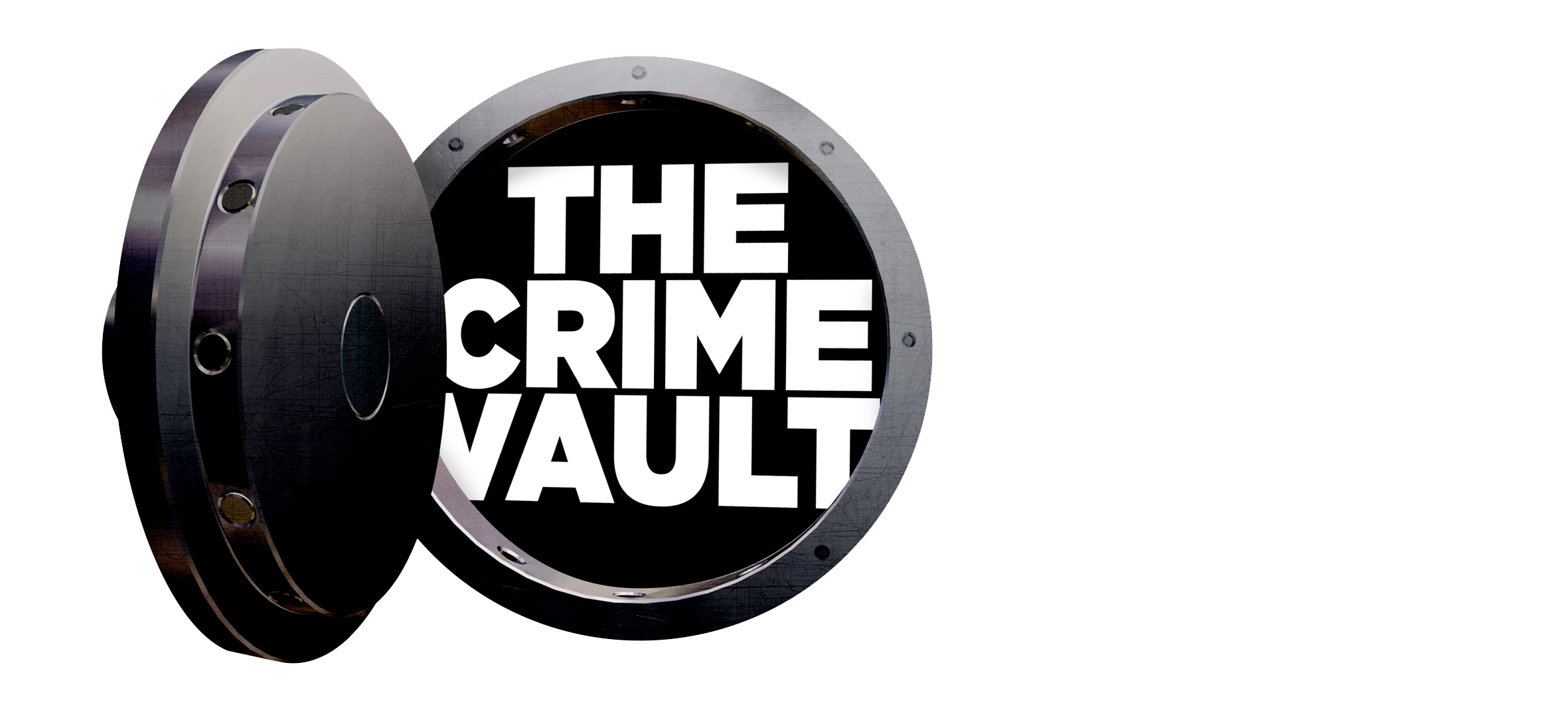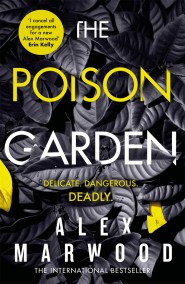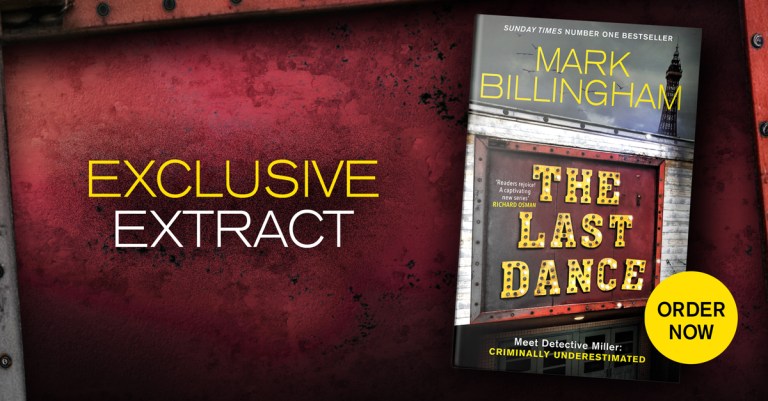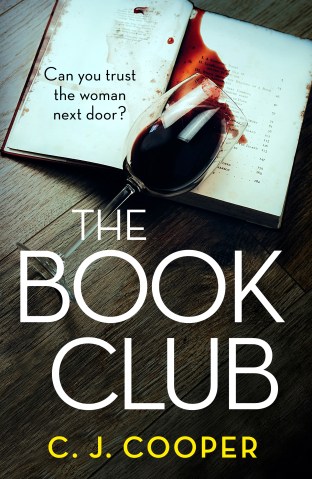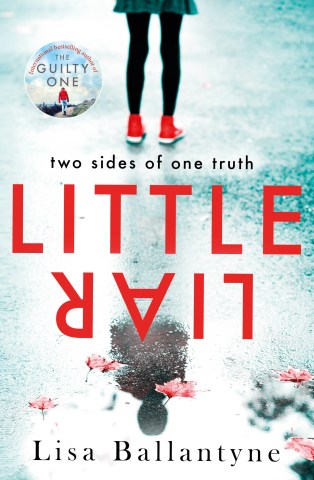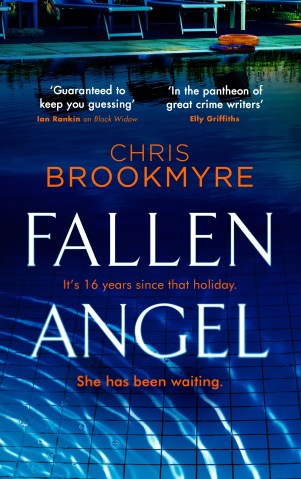The Poison Garden exclusive extract
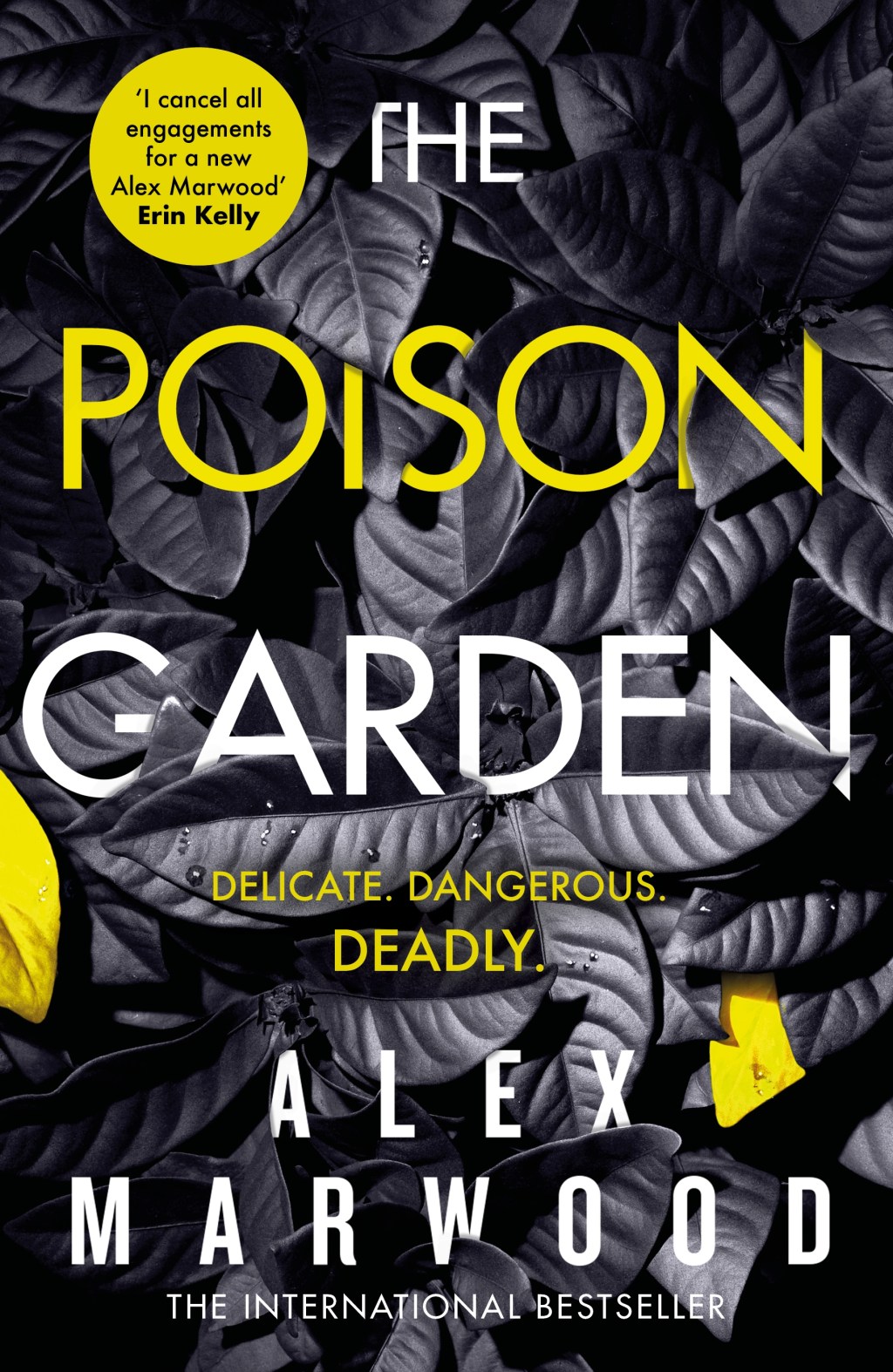
PROLOGUE
Kill me now.
Police Constable Nita Bevan has realised that her partner, Martin Coles, is a windbag. Three weeks together in the car and he’s barely drawn breath. He’s pretty good when they’re han- dling a shout, but the rest of the time it’s babble, babble, babble. And once he’s on a topic, there’s no escaping it. No matter how tepid her responses, no matter how inconsequential the subject matter, you can guarantee that when he gets back into the squad car and says, ‘Now, where was I? Oh, yes,’ he will literally pick up in the middle of the sentence he was speaking when the radio call came in. As though he’s stuck a bookmark in his brain.
He’s at it again as they drive along the Dolgellau road. Subject of the day: cheese toasties and who does the best ones. He’s hoping they’ll get done with this shout in time to get to the café in Fairbourne, which he recommends even above the Old Station Café in Bala and the Sea View in Barmouth.
‘Lovely bit of Caerphilly,’ he says, ‘and a spot of onion chut- ney. They do a good Welsh cake, too. Like Welsh cakes, do you?’
Kill me now.
‘Not sure I’ve had one,’ she says. She’s only been in Wales a month, after all. They’re not a foodstuff that’s common in Essex. ‘Never had a Welsh cake?’ he cries. ‘Well, you haven’t lived!’, and to her intense relief they round the corner and see the Land Rover they’ve been looking for, its owner standing beside it in his hill farmer uniform of checked shirt, wellington boots and binder twine.
‘Here we are,’ she says, and pulls onto the side of the road.
The hill folk tend to divide into two types: the garrulous, like her partner, and the taciturn. To her relief, Gavin Rees turns out to be closer to taciturn. Certainly not interested in bothering with local niceties. They’d be here all day before they got to the actual call, otherwise.
‘Thanks for coming,’ he says. ‘I don’t like to go up there by myself, you see. Trespassing.’
‘But you’re a neighbour, right?’ she asks.
‘Yes. Next farm over the hill. But they’re not very neighbourly, like. They don’t like visitors. I’ve barely been up there more than a handful of times, and then only by arrangement.’
They’re five miles inland, beside lush deciduous woodland in the Snowdonia foothills, but the air is filled with the cries of seagulls. Seagulls and crows. If she didn’t know better, she would suspect, from that and the smell that hangs in the air, that someone had started a clandestine landfill behind the trees. She eyes the little lodge house, the high metal gates, the wall that surrounds the woods. They’re closed, and the lodge shows no sign of occupancy.
‘And you think something’s wrong because . . . ?’
Martin has shut up, and is listening intently. A strange mix of a man. You’d think from meeting him that he wouldn’t notice a thing around him, but he has a memory like a steel trap when it comes to interactions with members of the public.
‘Well, it’s the smell, you see,’ says the farmer. ‘Oh, okay,’ says Nita. ‘So this isn’t normal?’ ‘Does it smell normal to you?’ asks Rees.
She pulls a non-committal face in response. No, it doesn’t, but smells have many sources. She’s been in enough farmyards that she doesn’t immediately jump to conclusions any more.
This smell is something else, though. It’s pervasive, nauseating. Sewage and ripe cheese and rot. The air is thick with it; so thick that it feels as though it will stick to her clothes. Martin won’t be wanting his toastie once they’ve dealt with whatever’s behind those gates.
‘And the cattle,’ says Rees. ‘They’ve been lowing up in the high pasture for days now. Like they’re in distress. I don’t think they’ve been milked.’
‘Okay,’ she says. ‘And the owners?’
‘They’re a . . . ’ he considers his next words ‘ . . . bunch of oddballs. Survivalist hippy types. Been up there thirty years preparing for the apocalypse.’
‘The apocalypse?’
He nods. ‘Years’ worth of food they’ve got stored up there.’ ‘How many of them are there?’
He takes off his flat cap and scratches the back of his head. ‘Hard to tell, really. You know, if you don’t go in and they never go out . . . Quite a few.’
‘Right,’ she says. ‘Okay, well, I’ll just report in to base and we’ll get those gates open, eh?’
They find the first body halfway up the hill. A man, thin and shaved bald, face-down on the one-track road. They pull up the squad car behind Rees’s Land Rover and get out, stand and stare at him in silence. No need to check his pulse. He’s purple, and bluebottles fly busily in and out of his open mouth.
‘Any idea who this is?’ she asks. Rees shakes his head. The taciturn has kicked full-in now. He blinks and blinks.
She radios in to base, to order back-up. Dead bodies are above her pay grade. The two men stand by the corpse and gaze wall- eyed up the road ahead. Nita realises that she’s the calmest of the three of them. But that’s why I came here, she thinks. After her burnout in London, constantly on guard for terrorists and stabby teens, the prospect of a rural life of farm thefts and the occasional pub fight had been very appealing.
But she’s clammy inside her hi-vis jacket. This body isn’t making her optimistic about what’s further up the hill.
‘I think we’d better walk from here,’ she says, eventually. ‘We’ll need to leave this guy as he is, for forensics.’
The birds are the first, the most obvious sign. The seagulls she noticed before, and the big black bodies of carrion crows. There are crowds – clouds – of them, wheeling and plummeting, over the land enclosed by a high wall on the far side of the orchard, where the chimneys of some grand old house soar up into the sky. The air rings with their cries. I had no idea all this was up here, she thinks. It looks like nothing from the road. Laundry – linen – hangs on cords strung between the apple trees, though it’s been drizzling the past two days. I don’t like this, Nita thinks. I don’t like it at all. There should be people. There should be people everywhere.
‘Do seagulls eat carrion too?’ she asks.
‘I think so,’ says Martin, finally finding his voice again. ‘I think they’ll eat anything.’’
There’s something behind that wall, she thinks, and I think it might change us all for life. She glances at her companions and sees that they are thinking the same thing.
*
The gateway is elegant, topped with pineapple finials. But some- one has beaten out a message in metal letters and attached them in an arch over the top. She has to squint to read the words against the bright grey sky. Everybody is a nobody, reads the outer layer; Everyone is a someone, slightly smaller, inside. Not a good place, she thinks. It might have been once, but this is not a good place.
And then she sees the foot. Right there, in the gateway: bare, pointing upwards and black on the heel, the body to which it is attached hidden by the wall. It is only eight inches long.
‘Oh, God,’ she says. ‘Are there children?’
None of us will be the same, by tomorrow, she thinks.
It’s a boy. Nine, ten years old, long hair tangled into fingers, face creamy-white beneath its healthy outdoor tan. His mouth is open, and so are his cloudy eyes, and flies rise from the folds of the loose pyjamas in which he’s dressed. One foot – the foot that was hidden as they approached the gate – still has a canvas shoe on: rubber sole, elastic across the top. The other lies sole-up in a puddle three feet away.
And beyond him, among lush beds of summer vegetables, lies hell.
They look like a river. Scattering out of the doorways, down the steps of the house, like a host of tributaries, joining together on the paths. More and more of them the closer they come to the gate. Piled on top of each other, frozen where they have fallen. As Nita, Martin and Rees step into the courtyard and the foetid, faecal smell overwhelms them, a tornado of gulls shrieks its way into the air.
The faces are blue, and green, and black. Mouths gape at falling rain. Fingers claw the empty space around them. Many eyes are open and many, she sees, are missing. Carrion birds love eyes. So tender.
Crawling, she thinks. They were crawling. Clambering over each other, trying to get to the gate. Trying to get out.
She gropes for the radio attached to her jacket as Martin bends at the waist to vomit.
They look for all the world like human jackstraws.
Among the Dead
September 2016
1 | Romy
Where I grew up, when someone died, we never spoke of them again.
Out here, among the Dead, it’s not so easy. I’m the only adult still alive, and all anyone wants to talk about is the bodies left behind. One more day, they say, and I would have been among them. Another statistic. As it is, this leg is never going to be what it was. They kept me for two weeks in the hospital. Then four days in a police station. They couldn’t think of anything to charge me with, but they didn’t want to lose me, either. Only Surviving Adult is, it seems, a status that makes you indispen- sable: a higher status than I’ve ever held in my life. Then they sectioned me, which meant that they could shut me away on mental health grounds in a thing called a ‘facility’ and ask me questions every day, and I couldn’t run away unless I literally ran away. And, to be fair, I was quite mad when they let me out. In the two days of silence after the screaming was done, I had begun to think that the world had ended while I lay on my sickbed.
So I lived alone in a cell, like a monk, but not without luxury – my own toilet in the corner and three meals a day and access to the showers – hot showers – whenever I asked.
They were kind to me, on the whole. Brought extra bedding and a television, and a pleasant young family liaison officer took me out for slow, recuperative hobbles on my crutches between interrogations. I saw streets and shops and a small park filled with trees, children running and shrieking beneath a blue sky. There was a canal, an artificial river built before the railways to connect the cities. Little painted boats lined the banks, tin pots full of geraniums on their roofs and bicycles chained to their sides. People live on them. I like that. I would like to live on a boat, if I could. Cast the ropes off and float to the middle of the water. It would be like having a moat.
Every day someone would come and ask if I had remembered any more, and every day I would give the same answer: I was full of morphine. I was on morphine until everyone died, and after that was nothing but white-hot pain. And they would bring pho- tographs of people they thought might have been among those livid blue corpses. Everyone changed their names to join the Ark, which has made identification a difficult process. I’ve seen so many young people in these photos. People with hair, people with families, teenagers with garish blue eyeshadow, smiling young adults in black cloaks and square-topped black hats clutching certificates. I saw Luz on a horse, in a tweed jacket and a hard hat, and Siraj with thick green hair gelled up into spikes and a tight sleeveless T-shirt emblazoned with the words ‘Never Mind the Bollocks’. And there were others I didn’t recognise: lost young people of the 1980s, the 1990s, the ones who vanished and left their families wondering. So many, so many, lost for the first time long ago. I would nod when the faces were familiar, and shake my head with the regret I suspected was appropriate when I didn’t.
Sometimes the interrogator would tell me who they were in the photos. That way, I learned that Father’s real name was Damian Blatchford, and Ursola was a Michelle. My own moth- er’s name was Alison Maxwell, last definitely seen in Finbrough, Berkshire, at the age of eighteen, living in a caravan with a baby who was me, but I knew that. She was thirty-eight when she died at Plas Golau, which makes me almost twenty-one. It turns out that I have a birth certificate, which they say is a lucky break as it will make my life out here among the Dead less complicated. They told me that Damian-pre-Lucien taught philosophy and politics at a thing called a plate-glass university on the south coast of England. He gathered a small group around him in the early 80s – most of them long gone, left or banished; one or two, I know, long buried in the chapel graveyard – and from there the Ark was born. With Vita – beautiful Vita – things are murkier. She was American, which makes it harder. They know she was in the country by 1986, because apostates from the early days have come forward and mentioned her as a driv- ing force even then. You know how many Americans passed through the country in the decade before 1986? Literally millions, they tell me, and nobody really knows how many actually left. Somewhere in the big box wastelands of Ohio or Oregon or Tennessee, a family has probably thought her dead for decades.
I wonder if anyone has mourned me.
After a month they moved me here, to a place called a Halfway House. It’s a large house in a town by the sea called Weston. It’s mostly full of philosophical junkies and humorous alco- holics, but there are a few ‘vulnerable adults’ like me. Most of my peers in this category spend their time crying in corners, or smoking with intense concentration on the steps outside, so I don’t feel particularly vulnerable by comparison. I, at least, am prepared for the disasters to come and stand some chance of surviving them.
We do group therapy once a day, and twice a week I see a counsellor. I have been designated ‘disabled’ because, I think, they don’t know what else to call me, and so every two weeks I can go to a machine in a wall and insert a plastic card, and it will give me £110 from a bank account they’ve set up in my name. I don’t really know what to spend it on – they give us two meals a day here and I was given an assortment of trousers, T-shirts and underpants while I was in the station. The Infirmary clothes they found me in were bagged up and taken away as ‘evidence’. So I bought a pair of stout boots and a waterproof jacket at a hiking shop in Weston, and I buy tobacco for my new friend Spencer, because he likes it and says he has few pleasures left to him now that heroin is off the table.
My therapist is called Melanie. I’m not sure why I need to see her, and assumed at first that it was some sort of surveillance thing. But everyone has assured me over and over that I’m not under suspicion. Melanie says that there is something called sur- vivor’s guilt, and something else called PTSD, and I am a prime candidate for both. As such, I have a high chance of suicide, depression and ‘social disability’. She believes in these things, has spent years studying them, the way I spent years learning to butcher animals and build shelters from sticks. Horses for courses, I guess. ‘I’m not sure you’re right about this “survivor’s guilt” thing,’ I told her once. ‘I’ve spent my entire life being trained for survival. Surviving the Apocalypse was all we ever thought about. It was our purpose and our identity. Being a sur- vivor is something to celebrate, not feel guilty about. I’ve done exactly what I was meant to do.’
‘Yes,’ she said, ‘but this is the real world.’ And then she went a bit pink and clammed up, because I guess that wasn’t the sort of thing she was supposed to say.
Melanie isn’t a specialist in cults. There aren’t many to hand in Weston, I suspect. She does her best. I don’t mind. I enjoy the opportunity for conversation. Everyone I used to know is dead, and I am invisible.
I quite like the Halfway. I grew up communally, after all, and I’m used to having people around me. What terrifies me is emptiness. The silence that would descend in the police station in the small hours once the drunks had passed out. The sound of the spyhole sliding back for the hourly suicide check was an intense relief because then I would know, just for a moment, that the world had not ended. Here, though, in these plasterboard cubbyholes, I can hear the creak of bedsprings and the coughs and sobs of my housemates, smell cigarette smoke combining with the salty murk of seaside air, and feel comforted in the knowledge that they’re all still alive for now.
Melanie says that I must make myself go out every day. An hour a day at first, then more, then more, until I can leave my four safe walls all day, if I want. ‘You can build yourself up,’ she said. ‘It’s like a muscle. It gets stronger every time you use it. Think of it as physiotherapy for your brain.’
I nod and frown. I have learned that this is a good way to make them stop explaining stuff. If you smile, they know you’re not listening. I hope that if I look as though I am, if I convince them I have improved, they will let me go. That they will think I’m safe to leave before they spot that my growing belly is more than just the sedative carbohydrate diet they serve us. The Outside fills me with fear, but I must achieve living there.
So I do what she says, and make myself go out into the streets every day, limp down to the seafront to savour the crash of the waves and the cries of the gulls and the scattered litter and dropped ice cream cones, but oh, the fear I have to fight to do it. Every day at Plas Golau we would hear another tale of slaughter among the Dead: the knives and the guns and the lead in the water, the trucks driven into crowds, the women sold for sex, the glittering silver towers of Mammon plunging to the ground. You don’t forget those tales, if you’ve heard them every day for almost twenty years.
Mostly what Melanie does is sit in her padded office chair and write notes, and say, ‘And how did that make you feel?’ And I will think up some words – sad, lonely, isolated, afraid, angry, resentful, though I will throw in the odd hopeful to encourage her – and she will write another note and nod. When they noticed that I was throwing up, it seemed to make her happy. She called it ‘a symptom of emotional turmoil’. ‘It’s quite common, when people are experiencing powerful negative emotions,’ she said.
‘It happened this morning when I was deciding between tea and coffee,’ I told her. ‘And again when I was reading the news- paper. An article about how they train monkeys to look after blind people.’
‘Well, we’ll talk about those issues another time, perhaps,’ she said, and wrote another note. I’ve noticed that you don’t have to do much to divert people’s attention. Once they’ve assumed something, most things they see or hear will confirm it. All you have to do is not point out the obvious, though most times even doing that won’t make much difference. It’s fine by me if she wants to think I’m throwing up because I can’t handle the sight of a few dead bodies. I’m naïve in many ways, baby, but I’m not so clueless I don’t know that your existence will complicate things. Much better to let Melanie think she’s helped my neuro- sis by making me vomit.
‘Let’s talk about your family,’ she says. ‘How do you feel about them? Your brother and sister. Do you miss them?’
‘I . . . ’ How do you explain, to someone who didn’t live it? ‘Not particularly.’
She makes another note.
‘No, look. We weren’t, you know, a family family, the way you’d think of it. All of us were family to each other, whether we were related by blood or not. We were a . . . ’
I search for the words. I know she’s waiting for me to say ‘cult’, but I’m damned if I’m going to. I hate this, more than I hate anything about my life now. The fact that our vocabulary was so different from their vocabulary, so I have to hunt for the words that they would use instead of the ones I’ve used every day of my life. No one ever gives me credit for this; they just assume that because we spoke English the problem must be that my vocab- ulary is lacking. If I were Syrian, they’d be offering translation services. But then, who could translate for me? They’re all dead, or disappeared. I might as well be speaking Mayan.
‘I suppose you’d call it a commune. It was communal,’ I tell her for the umpteenth time. ‘Because we were all raised together and the adults took turns to care for us.’
The Pigshed. That’s what it was called, the schoolroom where we did our learning while the adults worked the fields. I tend to avoid using the name with Melanie.
She extrapolates. ‘Ah, a sort of kibbutz?’
‘If you say so. And besides, Eden’s only fifteen and Ilo is thirteen. I was out training most of the day by the time they were out of nappies.’
‘Training?’
‘Everybody has a function,’ I recite. ‘Everybody is a nobody, and everyone is a someone.’
She looks impressed. ‘Is that something you came up with?’
I look back at her with my ‘oh, please’ look. I’m quite pleased with this look. I learned it in group therapy. And then I start feeling sick again, and have to excuse myself to run to the toilet. Which uses up another few minutes before I come back to Melanie and her own trademark look: ‘you see?’.
‘And how is the anxiety?’ she asks, pointedly, when I return. I get out my NHS-issue notebook and read out my homework. Over the last seven days my anxiety levels, on a scale of one to ten, have been eight, eight, six, ten, nine, nine, eight. The first nine was the day I nearly got mown down by a bus on the sea- front. There are skills I have yet to fully master, and it seems that crossing the road is one. I rarely get down below eight even now, breathing exercises and mindfulness notwithstanding. I love beta blockers, though. The wonderful slow, calm beating of my heart after I take one.
She isn’t delighted, I can tell from her face. Then she brightens, because optimism is Melanie’s default, just as expecting the bombs to start dropping at any moment is mine. ‘Well!’ she says. ‘Friday looks like an improvement! What did you get up to on Friday?’
I consult my diary. ‘That was the day I stayed in and cleaned my room. I think it would have been lower, actually, except that I started worrying about the chemicals in the cleaning products. They won’t harm me, will they?’
The ten, the next day, was when I thought I saw Uri down on the seafront, buying an ice cream from a van covered in cartoons of dancing confectionery. And my heart started thumping until he turned full-on to me and I saw that he was just a random man with a shaved head and a thick neck.
‘Oh,’ she says. I must be a frustrating patient. I must start lying in the notebook, or I’ll never get out of here. And I need to get out of here, soon. If I register a few threes and fives, it’ll make her happy. Last week I had a bout of paranoia that chemicals from laundry detergent could leach from my clothes through my skin, and ended up rinsing everything I own in the bath. It’s a shame, as I am still amazed by how easy cleaning is when you use chemicals. And how good the food tastes. But you can never be too careful.
Chemicals are one of the ways that the human race will end, Father said. Chemicals, plague, war, famine, nuclear winter, endless summer, economic collapse, devolution. ‘All-natural is the way we live,’ he would intone from his podium on the Great House steps as the Launderers scrubbed and squeezed at our clothing in bath-sized laundry coppers filled with soapwort. ‘All-natural is the future. All-natural is life itself.’ Our clothes were all-natural grey because bleach is a chemical, too, but it was convenient that they were, because soapwort, like feverfew, is not all that effective.
‘Will they?’ I ask.
‘I don’t think so,’ she says. ‘There are lots of laws about chemicals. They have to test them a lot before they start selling them.’
You say, I think.
Of course, what I really mean is whether they will harm you, but I can’t tell her that, because she doesn’t know you exist. But I can’t kill my baby. Not now. You’re the future.
I don’t know why I’m worrying so much about the chemicals.
After all, everyone at Plas Golau died an all-natural death.
2 | Sarah
Next of kin.
Sarah Byrne last saw her sister twenty-one years ago. She left when Sarah was ten, and their parents never spoke of her again. And, because she had never liked Alison much, Sarah just went along with it. She remembers her more as a looming presence, a whirlwind of rage ready to go off and destroy the world, than as a sister. Seven years is a big gap to bridge when you’re children, and by the time Sarah was old enough to form solid memories and opinions Alison had been consumed by hormonal rage. In a way, her leaving was a relief. Sarah had just dismissed her from her mind as their parents had dismissed her from their lives. She’d felt the death of their old tuxedo cat, Mimi, two years later, more than she ever felt Alison’s absence. It’s been twenty-one years and she doesn’t remember thinking about her in a decade. And now . . .
Helen is looking at the centre-spread of the Mail on Sunday where Sarah first found her sister. One of these multi-page spreads with which the papers fill the space between ads in the silly seasons, while signalling that they care. There have been three this year already. At New Year, a round-up of every woman killed by her partner in the UK in 2015. At Easter, a year’s worth of London’s knife crime. And now, the holidays under way, every one of the identified dead of Plas Golau, in full colour.
NOT JUST A CROWD, reads the headline. Beneath, across sixteen full pages, a yearbook layout of the dead, a pious little editorial about how ‘we’ forget that behind the headlines and the body counts are real people. People whose lives fit neatly, with mugshots, eight to the tabloid page. And there was Alison, in among them, and Sarah’s world imploded.
Helen looks up. She’s on Sarah’s great-grandfather’s high- backed sofa, pretending she’s comfortable. The fact is, there isn’t a comfortable seat in this house. Just formal furniture for people who took pride in discomfort, and Sarah has been too sad, too demoralised by life, to do anything about it since she moved back in.
‘So how does it make you feel?’ asks Helen. She’s the counsellor at the school where Sarah is administrator, and a lot of her conversation consists of questions like this. A professional tic, like always having a Kleenex pocket-pack about her person.
‘I . . . awful. Guilty.’
‘Guilty? Why guilty? You were only ten when she left, you said?’
‘Yes, but I’m not ten now, am I? l’m thirty-one. l’ve been an adult for over a decade.’
‘And?’
Sarah swings her hands out, wildly. ‘I should have . . . I could have done something. I could have tried to find her.’
‘Really?’ Helen picks up her wine glass and takes a sip. So kind. She could be home now with her two kids and her quiet husband, but instead she’s taken time out to come and look after Sarah. I guess she probably thought l’d feel bereaved, Sarah thinks. I mean, you would, wouldn’t you, if someone told you their sister had died? But she’s grateful, whatever. She’s felt very alone in the three years since her divorce, knocking about in her dead parents’ museum of a house the past two. To find out that she has even one friend prepared to drop stuff for her is a pleasant surprise.
‘You said you didn’t know where she was,’ says Helen. ‘You know that’s more down to her than it is to you, right? I think in the end, given that there was always someone here to contact, you can fairly safely assume that Alison didn’t want to be found.’ Sarah finds herself tearing up for a moment. She doesn’t know why. It’s not as if she missed her sister when she was alive. She picks up the Mail and looks at Alison’s pitiful biography.
Alison as she remembers her. A photo taken at school, in her dark blue uniform cardi. Alison at fourteen, fifteen, hair still unembellished blonde – it went every colour in the rainbow once she entered the sixth form – and cut to the shoulders with her mother’s kitchen scissors. Glaring at the camera as though she wanted to blow up the world.
Sarah puts her wine down, feels slightly sick all over again, though she’s read it and read it until she should be immune, really. She stares at all the other faces on the page. Young ones, thin ones, sad ones, ones that smile dutifully for the camera – decades-old photos donated by long-abandoned families. She still doesn’t know where they got this photo. They certainly didn’t contact the school; it would have been Sarah who would have answered the phone if they had. One of her sister’s former friends, she guesses.
She reads again, though she remembers the words by heart:
Alison Maxwell, 38. Born Finbrough, Berks, a member of the Finbrough Congregation evangelical church. Having developed a reputation in the town as a ‘wild child’, she left the family home at 17 when she fell pregnant. Last seen in Finbrough in the winter of 1995. Spotted a handful of times with her baby, working stalls on the music festival circuit the following spring and early summer, then vanished from sight. Two further children, born at the compound in 2001 and 2003. ‘She was lovely,’ said an old schoolfriend. ‘She was a rebel, but anyone would be, coming from that set-up: it was stifling. I can’t believe this was what happened to her. But I can see, if you’re all alone with a baby and you’re looking for something better, how easy it would be to catch you.’ The Finbrough congregation apparently disbanded some time ago, and her family are uncontactable.
Sarah sighs. Drinks. Puts her glass down. So much for the press’s fierce reputation for tracking down their targets. Though to be fair they will have had enough easy pickings available that they’d not have needed to spend much time on the dead ends.
‘So, what do you think?’ asks Helen. ‘About the kids?’
‘I don’t know,’ she says. ‘I don’t, Helen. Social Services are all over my arse about taking them, but I don’t know anything about children.’
Helen makes a pfft noise. ‘You deal with them literally every day.’
‘No, but . . . that’s shouting at them about lunch money and telling them not to run in corridors. It’s not . . . it’s other people’s kids. Not my own.’
Helen wrinkles her nose. ‘Nobody knows anything till they have them. The global population was still growing last time I looked.’
They fall silent. She knows Helen is waiting, like the therapist she is, for her to say something, but she doesn’t know what to say. Looks around her gloomy parochial home, all dark wood and ancestral portraits, and listens to the sound of the grand- father clock clearing its throat in preparation for striking. All those nights lying awake in the dark, feeling its malevolence as it waited to count off another hour of life with nothing achieved. How can I provide a happy home for another generation here? she thinks. This place I was so keen to leave that I married the second I got the chance? I’m so stupid, coming back here when there was literally a whole world out there to move to after my marriage broke down. I should have sold it straight away. The only use for a house you hate is to get the money to buy a house you don’t.
She especially hates that clock. Hates the sound of it, the tick, tick, tick, the whirring strike mechanism. Hates the sound of all clocks striking. She wanted no clocks, she stipulated, in her marital house in Reading, and Liam went along with that. They timed everything by mobile phone. Yet now, every Saturday night, she dutifully winds the evil thing, like her father and his father before him.
‘I’m going to meet them on Saturday,’ she says, eventually. ‘It’s the right thing to do. I’ll put faces to the names, at least.’
‘Okay,’ says Helen. ‘But that doesn’t commit you to anything, just remember that . . . What are their names?’
‘Eden,’ Sarah says, ‘and Ilo. Fifteen and thirteen. And there’s a girl – woman, she must be twenty or so by now – called Romy. She’s the one they found in the Infirmary. The sole survivor. Adult survivor.’
‘Oh, God, I remember the photo,’ says Helen. Sarah does too. A skeletal form that looked dead itself, oxygen mask strapped to her face, body strapped to a stretcher, snapped by a thousand lenses as they carried her past the piled-up corpses to an ambu- lance. ‘I didn’t realise she was . . . another of yours . . . ’
‘Yes. She was the reason Ali left home in the first place. Well, I say “left”. She wasn’t exactly given a choice in the matter.’
Wow, I sound bitter. Well, I am, I am. They kicked her out, and now she’s dead, and I have to make a decision and I don’t know . . .
The clock strikes, and she jumps. It’s literally hard-wired into her, now. Pavlovian. I’ll sell the bloody thing, she thinks, what- ever else I do. Get an antique dealer round and flog him the lot. And then I’ll sell the house. I don’t have to put my life on hold for people I didn’t even know existed until yesterday.
‘I was going to go travelling,’ she says, mournfully.
‘I know,’ says Helen, ‘it’s a bugger. Life does have a few curve- balls up its sleeve.’
‘Can’t I just . . . I don’t know. Put money in trust for them when they’re adults or something? You know – give them what would have been Ali’s share of the house? That would be fair, wouldn’t it?’
‘If you can be okay about leaving them in care, I guess.’
‘I can’t do it, Helen. Except – God, I don’t know how I’m meant to do this. They’re going to be a mess. They saw every- body they’ve ever known die, for God’s sake . . . and a cult! The closest I’ve ever come to knowing about kids and cults is maintaining the anti-radicalisation staff training spreadsheet.’
‘Well, you wouldn’t be doing it alone,’ says Helen. ‘If they come to the school, there’ll be me, for a start.’
‘But they . . . they need someone who knows them. Someone who knows how to comfort children. Look at me. It’s not just them who’ll be a mess. I’m a mess.’
‘I wouldn’t say so,’ says Helen. ‘No more than half the parents I come across.’
‘I am! Come on – who would live in a place like this if they weren’t a mess? I need to sort myself out before I can be any use to anyone else. What if I screw it up?’
‘That’s fear talking,’ says Helen. ‘Which is perfectly under- standable. You don’t have to do this, Sarah.’
But it’s not their fault, Sarah thinks, and feels the guilt all over again. They’re orphans of a storm created by other people’s wicked choices.
'I devoured The Poison Garden . . . Gripping and utterly convincing, it's Alex Marwood at the top of her (already impressive) game' JOJO MOYES
_________
Where Romy grew up, if someone died you never spoke of them again.
Now twenty-two, she has recently escaped the toxic confines of the cult she was raised in. But Romy is young, pregnant and completely alone - and if she is to keep herself safe in this new world, she has some important lessons to learn.
Like how there are some people you can trust, and some you must fear. And about who her family really is, and why her mother ran away from them all those years ago.
And that you can't walk away from a dark past without expecting it to catch up with you...
Shocking, tense and sharply written, The Poison Garden is the gripping new novel from the international bestseller and Edgar award-winning Alex Marwood.
__________
Readers love The Poison Garden:
'Terrifying and unsettling, as if a harbinger for our times . . . Thrilling' LISA BALLANTYNE
'This superbly eerie psychological thriller confirms Alex Marwood's reputation as the Queen of Unease' FRANCIS WHEEN, author of Strange Days Indeed
'Absolutely chilling . . . Another brilliant, shockingly dark book from a master storyteller' SAM BLAKE
'I really loved Alex Marwood's dark, tense (and disturbingly real) The Poison Garden . . . you want this for your summer reading' STELLA DUFFY
'A dark and disturbing look at life inside a cult . . . I was transfixed' NetGalley reviewer
'A story that will chill you to the bone . . . This is a must-read' NetGalley reviewer
'Compulsive reading, this is an addictive suspenseful psychological thriller like no other' NetGalley reviewer
'I was hooked from the first page and found it very hard to put down' NetGalley reviewer
'For me, this was the perfect book. Intricate and captivating' NetGalley reviewer
'This is my most eagerly anticipated novel of the year and wow! It's even better than I expected' NetGalley reviewer
